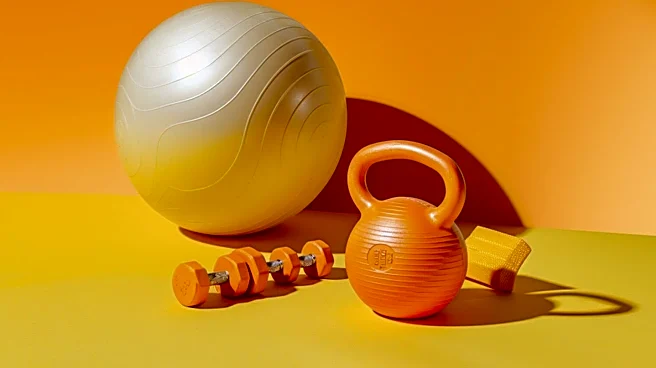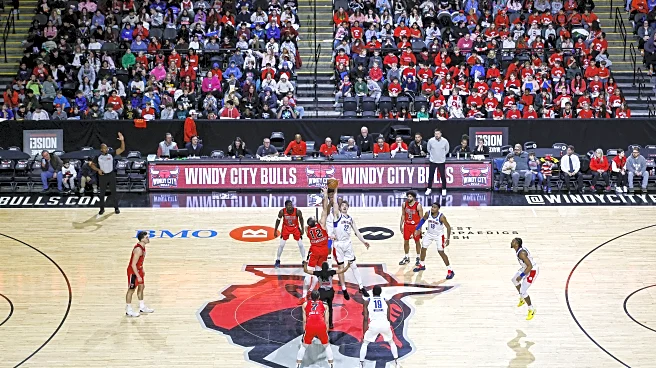What is the story about?
What's Happening?
A recent study published in BMJ Sports Medicine highlights the benefits of 'exercise snacks,' which are short bursts of physical activity lasting less than five minutes. Led by Miguel Ángel Rodríguez from the University of Oviedo, the research compiled data from seven randomized clinical trials involving over 400 inactive adults aged 18 to 80. The study found that these brief, deliberate exercises, such as stair-climbing or tai chi, significantly improved cardiorespiratory fitness in adults under 65 and muscular endurance in those 65 and older. Despite limitations in data collection methods across trials, the study emphasizes the potential of exercise snacks to help inactive individuals become more active.
Why It's Important?
The findings are significant as they offer a practical solution for individuals who struggle with time and motivation to exercise. With less than half of U.S. adults meeting recommended aerobic activity levels, exercise snacks provide an accessible way to improve fitness. The study suggests that even small amounts of deliberate exercise can enhance everyday tasks and serve as a foundation for more intense workouts. This approach could lead to broader public health benefits by reducing the risk of heart disease and diabetes, as improved cardiorespiratory health is linked to these conditions.
What's Next?
The study encourages individuals to incorporate exercise snacks into their daily routines, potentially leading to more consistent and intense physical activity over time. Health professionals may advocate for this approach as a stepping stone to more comprehensive exercise regimens. Future research could explore the long-term effects of exercise snacks on cardiometabolic health, given the surprising lack of impact found in this study. As awareness grows, exercise snacks could become a popular method for improving public health and reducing healthcare costs associated with inactivity-related diseases.
Beyond the Headlines
The concept of exercise snacks challenges traditional views on fitness by emphasizing the importance of small, manageable changes rather than lengthy workouts. This approach aligns with modern lifestyles, where time constraints often hinder regular exercise. It also highlights the adaptability of the human body, which can benefit from even minimal physical activity. As society becomes more health-conscious, exercise snacks could influence cultural attitudes towards fitness, promoting a more inclusive and accessible approach to physical health.















